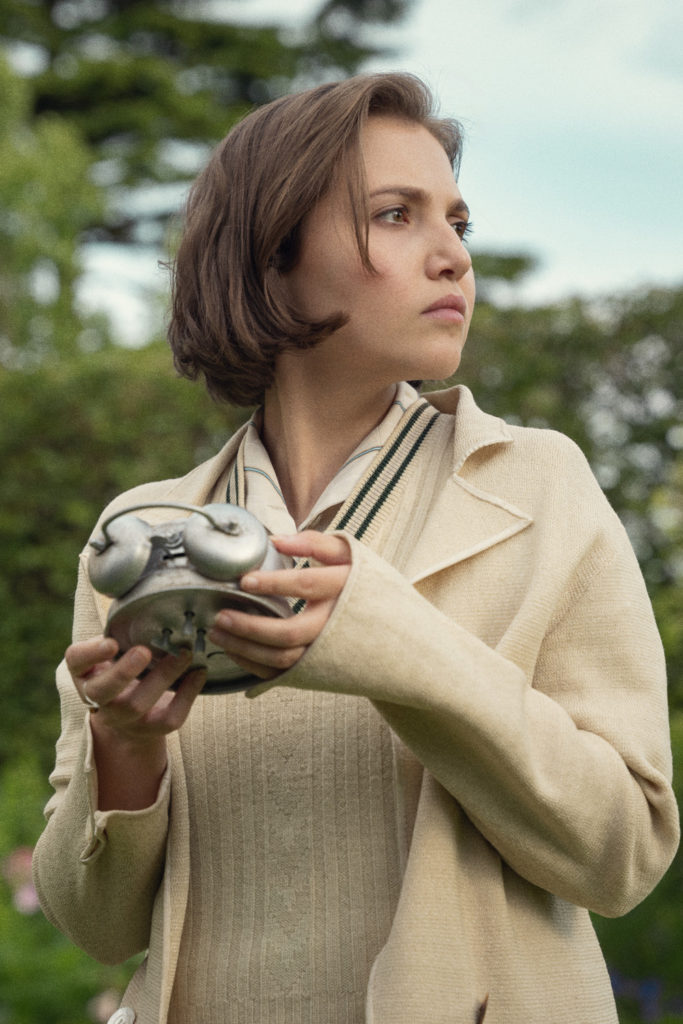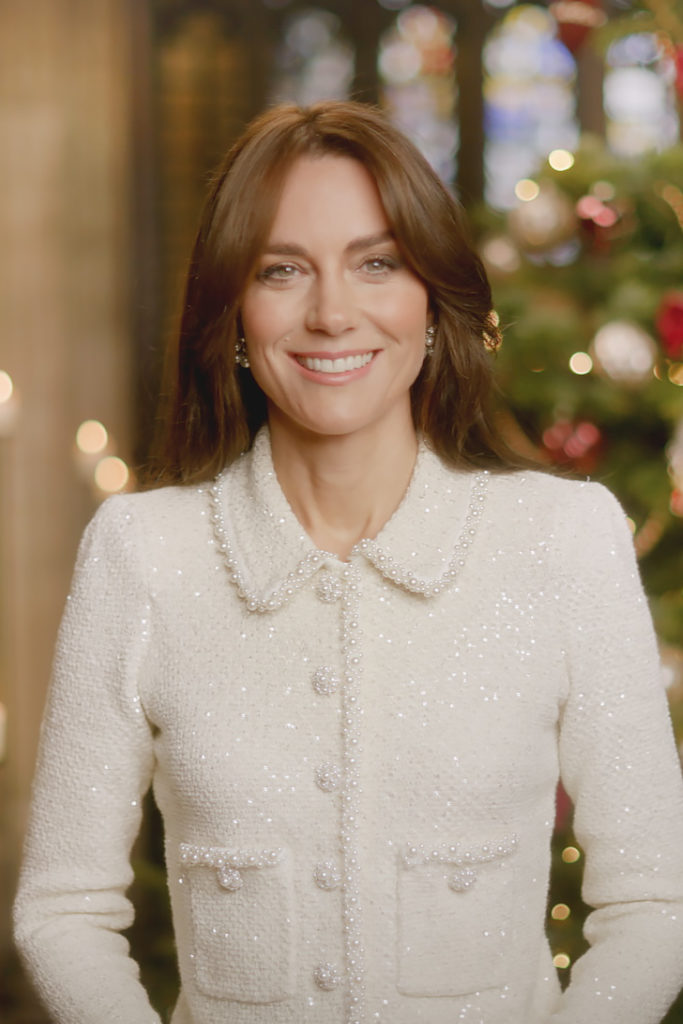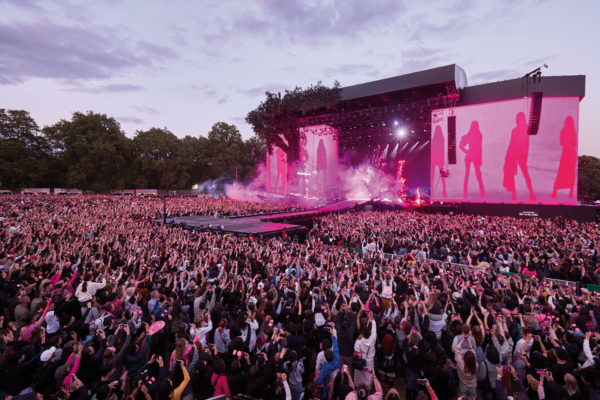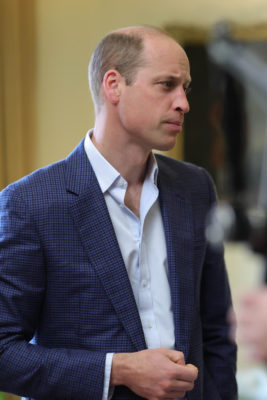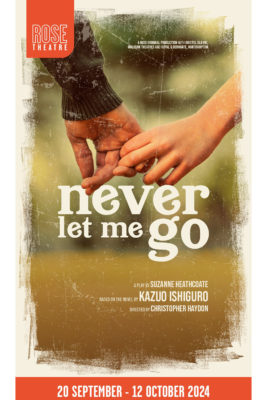Tosca At The Royal Opera House
By
1 year ago
Everything you need to know about this glorious production
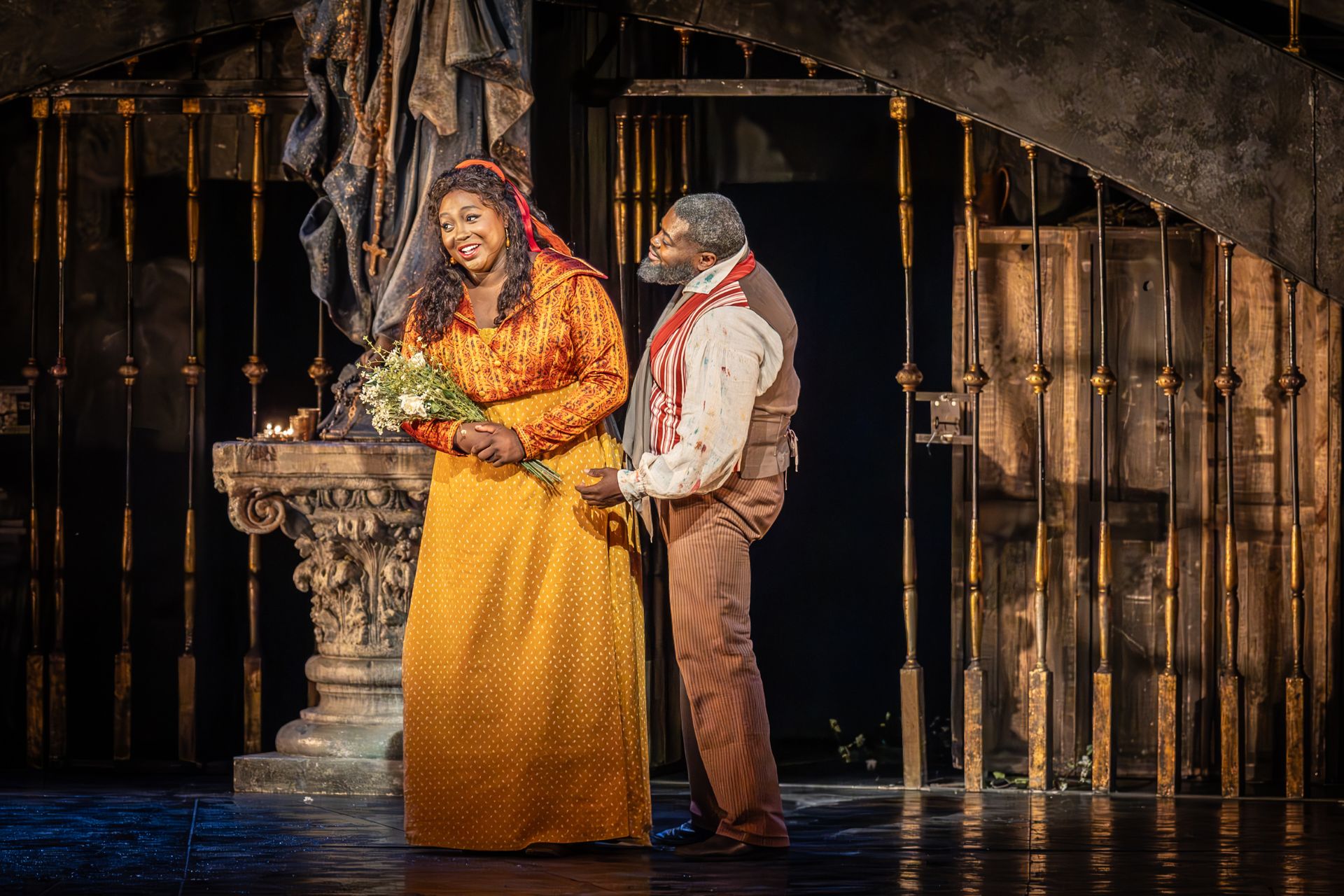
Caroline Phillips is wowed by Tosca at the Royal Opera House.
Review: Tosca, Royal Opera House
This production of Puccini’s Tosca is a winner from the moment the Royal Opera’s ginormous red velvet curtains, still embroidered with ‘EIIR’, pull open. It’s hardly surprising then that it’s on its 17th run at Covent Garden.
Tosca is set in Rome in June 1800, with the Kingdom of Naples’ control of Rome threatened by Napoleon’s invasion of Italy — although the ongoing politics are secondary to the basic narrative. First performed in 1900, it’s a piece that wouldn’t make it before the watershed if it were on TV, given that it includes suicide, torture, an execution and murder.
This production was directed originally by Jonathan Kent, (former Almeida bigwig) who previously did Manon Lescaut at the Royal Opera. It’s been revived very capably by Peter Relton – who has worked with directors from Phyllida Lloyd to Rufus Norris – who closely follows Kent’s original production.
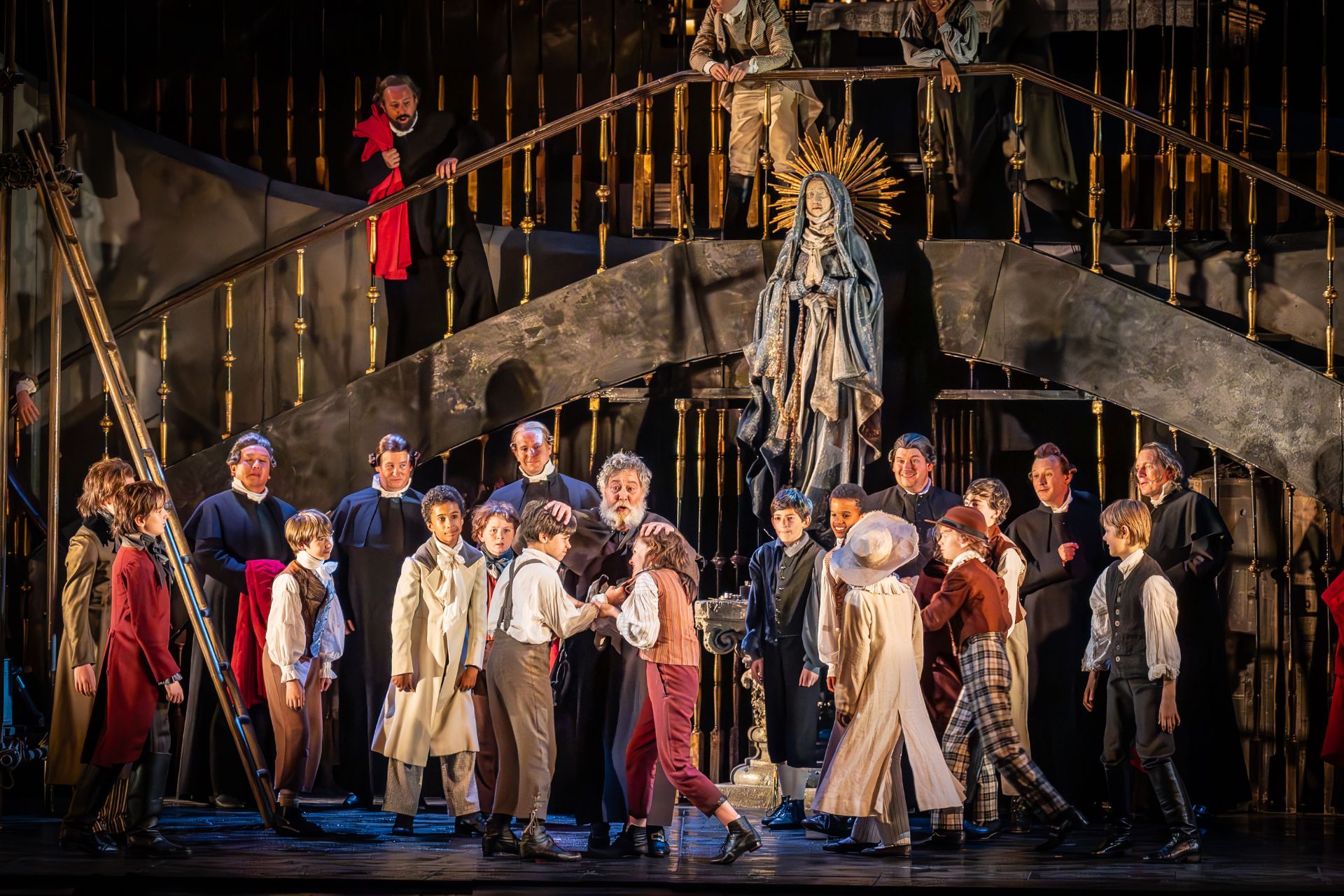
Royal Ballet and Opera, © 2024 Marc Brenner
American soprano and two-time Grammy winner, Angel Blue – earlier Violetta in La Traviata at Covent Garden – plays Floria Tosca (the second cast will have Sonya Yoncheva in the title role from 14 July). Another American import, tenor Russell Thomas, plays opposite her as the artist Mario Cavaradossi, following his recent Covent Garden roles as Calaf in Turandot and the title role in Othello. Ludovic Tézier (a regular onstage at the Royal Opera) is Baron Scarpia. And the political prisoner Cesare Angelotti is played by Christian Federici (soon to debut at Glyndebourne).
Angel Blue (Tosca) is mesmerising, particularly when she lets rip, erupting with power; equally the audience erupts in applause after her show-stopping rendition of the great aria, ‘Vissi d’arte’. Ludovic Tézier (Baron Scarpia) is a booming, brutish baritone, and a believably malevolent, tyrannical and lustful figure (proudly preferring ‘violent conquest’ over ‘sweet consent’). Russell Thomas as the artist, Cavaradossi, is sometimes vocally challenged, finding it hard going, but when he’s in full flow he’s good.
The set designs by the late Paul Brown include a magnificent Church of Sant’Andrea della Valle with a sweeping double staircase to the altar for Act 1; and a soaring wood panelled library with massive sword-wielding statue for Act 2. They’re also well used , the direction making use of the whole stage.
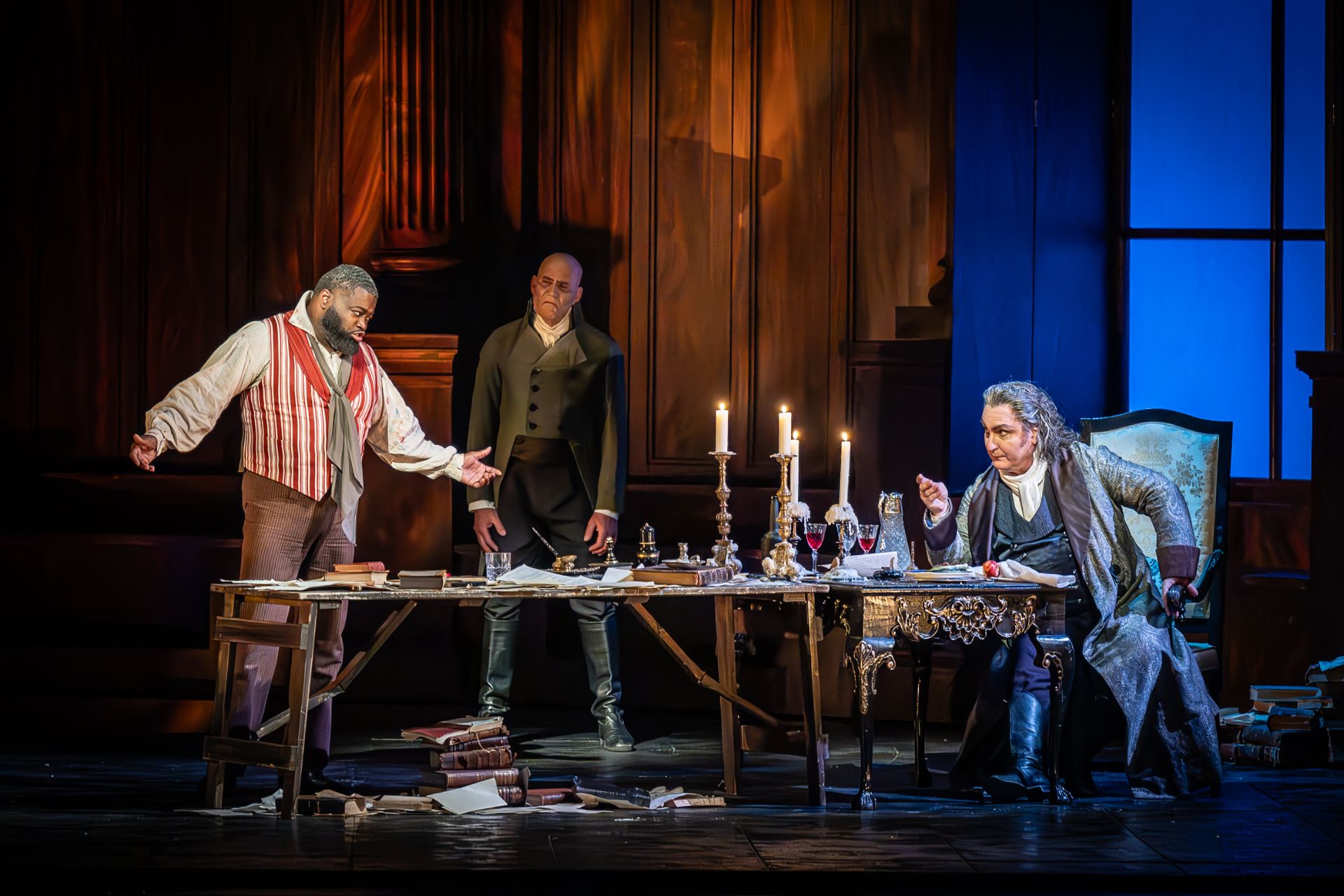
Royal Ballet and Opera, © 2024 Marc Brenner
The sounds that come up from the orchestra pit are a joy – from the moment the tone is set with the three very loud, strident opening chords that represent the evil character of Scarpia and the violent atmosphere that pervades the entire opera. Thereafter it finds its way from subtle, quiet bits into crescendi with crashing sounds and the orchestral turmoil that follows Tosca’s stabbing of Scarpia.
Tosca has been enduringly popular despite some critics having dismissed it for being melodramatic and lacking coherence – after the premiere, one decried it as ‘three hours of noise’; while a musicologist famously dubbed it a ‘shabby little shocker’ – but it boasts some of Puccini’s best-known lyrical arias and a powerful score.
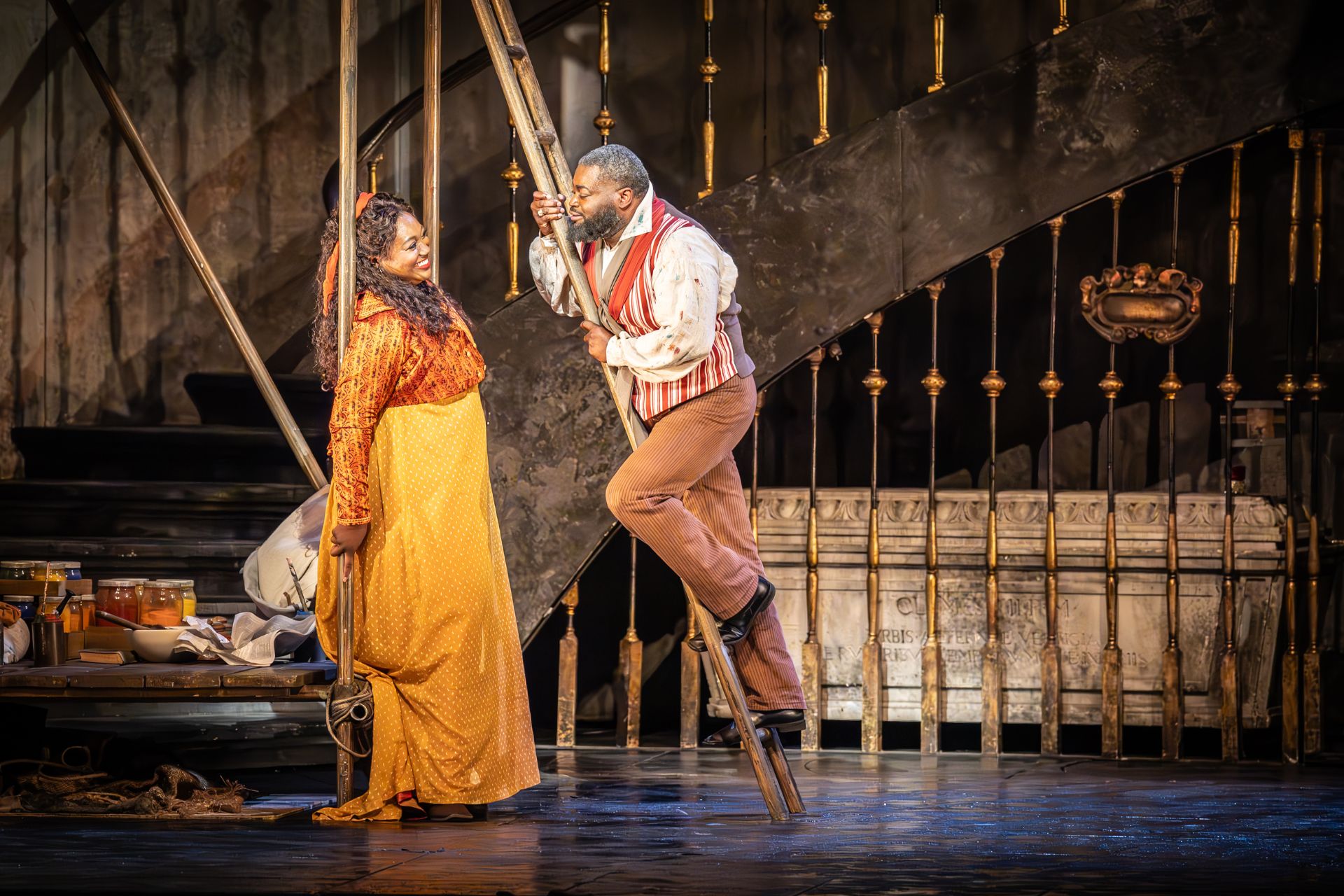
Royal Ballet and Opera, © 2024 Marc Brenner
Floria Tosca’s final plunge from the battlements at the Royal Opera is a reverse flip. Apart from this, there’s not too much in this production that’s original. But it still deserves four stars out of five. What would give it the full glittery set? Perhaps if the production were less mainstream, more original, and if there were more subtlety of character. I’d previously seen Tosca only once – and listened to the cassette (remember those?) of this opera a gazillion times – and my companion, an opera buff, had seen it five times. Both of us would be delighted to see it again.
BOOK IT
Catch Tosca at the Royal Opera House until 13 December. rbo.org.uk


